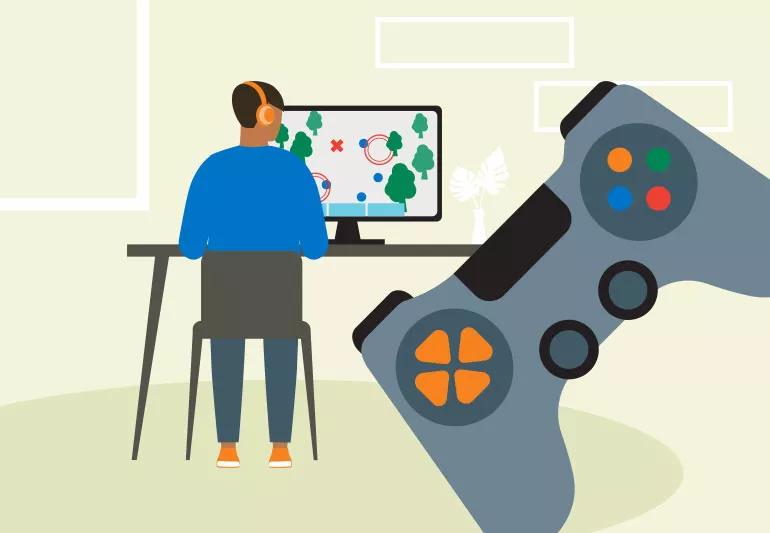Do Most Adults That Are Autistic Play Video Games? Exploring the Connection
In recent years, the landscape of video gaming has expanded tremendously, not only in terms of technology but also in its social implications. One particularly interesting demographic within this expansive gaming community is autistic adults. There seems to be a growing recognition of the connection between autism spectrum disorder (ASD) and video gaming, and this article aims to explore that relationship and offer insights into how gaming can benefit adults on the spectrum.
Understanding the Prevalence of Video Gaming Among Autistic Adults
While definitive statistics on the number of autistic adults who engage in video gaming are sparse, numerous studies emphasize a notable presence of gaming within this community. Research indicates that a substantial percentage of children and adolescents on the spectrum enjoy video gaming, which naturally extends into adulthood. Anecdotal evidence and community discussions regularly highlight that many autistic individuals find solace and comfort in video games.
In fact, studies reveal that adults with ASD tend to spend more time gaming compared to their typically developing peers. For instance, one study found that autistic individuals play an average of approximately 2.1 hours of video games daily, compared to 1.2 hours for their non-autistic counterparts. This increase in gaming hours suggests that video games may serve an essential role for many autistic adults, offering them an engaging outlet for relaxation, stimulation, and social interaction.
The Benefits of Video Gaming for Autistic Adults
1. A Safe Space for Social Interaction
One of the most significant advantages of video games for autistic adults is the potential they hold for socialization. In virtual environments, the social dynamics are often simpler, less intimidating, and more structured than in face-to-face scenarios. Many games incorporate built-in communication features that allow players to interact at their own pace, thus providing an avenue for forming friendships without the overwhelming pressures that traditional social settings may impose.
2. Developing Problem-Solving and Cognitive Skills
Video games are not only entertainment; they also challenge players to think critically and solve problems. Many games require strategic planning, quick decision-making, and reaction time, offering cognitive stimulation that can be beneficial for autistic adults. These skill sets can translate into real-life situations, improving an individual’s ability to navigate challenges both in the virtual and physical world.
3. Providing a Sense of Achievement
Achievement is a crucial aspect of personal development, and video games often cater to this need through their goal-oriented structure. Completing a level, winning a match, or achieving an in-game milestone can evoke feelings of accomplishment. For autistic adults who may struggle with self-esteem or have faced social challenges, these small victories can significantly enhance their sense of self-worth and motivation.
4. Customization and Control
Many video games allow players to customize their characters, interfaces, and experiences. This level of control can be particularly appealing to autistic individuals, giving them the chance to engage with the game in a way that feels comfortable and rewarding. In a world where many situations can feel overwhelming, gaming can provide a sense of order and predictability.
Potential Drawbacks and Challenges
Despite the numerous benefits, it is essential to acknowledge that excessive gaming can lead to negative consequences. For some autistic individuals, a tendency toward excessive gaming may lead to social isolation or may serve as a means of escaping uncomfortable realities. Moderation is key; it is crucial to encourage healthy gaming habits and ensure that it does not interfere with daily responsibilities or social engagements.
Encouraging Healthy Gaming Practices
As a community, it is vital to support autistic adults in developing positive gaming habits. Here are some ways to promote healthier gaming practices:
- Set Limits: Encourage setting specific time limits for gaming sessions to prevent excessive play.
- Engage in Group Games: Promote games that allow for cooperative play with friends or family, fostering social interactions.
- Balance Activities: Encourage a mix of gaming and other hobbies or activities to ensure a well-rounded lifestyle.
- Discuss Experiences: Create open conversations about gaming experiences, sharing achievements and challenges with family and friends.
Conclusion
The connection between autistic adults and video gaming is multifaceted and rich with potential benefits. While gameplay offers an engaging and often therapeutic experience, it is essential to approach it mindfully, ensuring a balanced lifestyle. As we continue to explore the diverse experiences of individuals on the spectrum, the gaming community emerges as an inclusive space that acknowledges and fosters the unique needs of autistic adults. The bonds formed, skills developed, and experiences shared in the gaming world can be profoundly enriching, making it a noteworthy aspect of the modern autistic experience.
